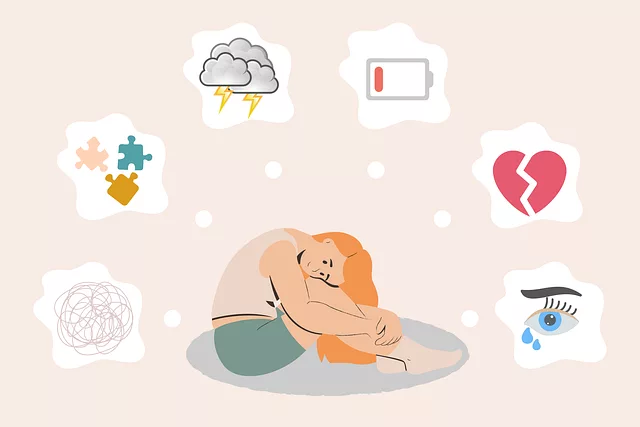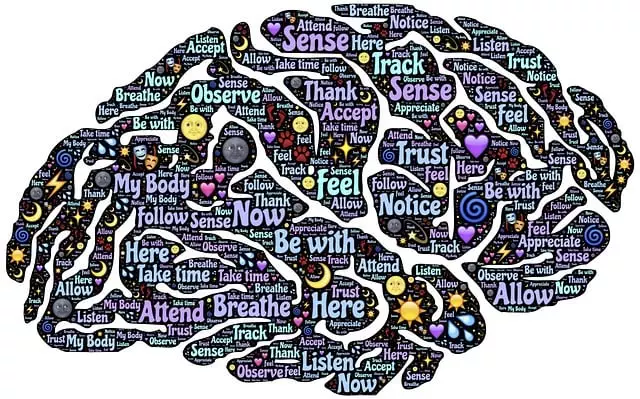Mental wellness journaling is a powerful tool for self-reflection and emotional well-being. By recording thoughts, feelings, and experiences, individuals gain insights into their mental health, track progress, identify triggers, and develop coping mechanisms. Kaiser's inpatient mental health services in Castle Rock encourage this practice to enhance emotional well-being and foster personal growth. Regular journaling contributes to mental health policy advocacy by offering firsthand accounts of individual challenges and potential community solutions. It's an accessible and effective method for self-care, encouraging consistent introspection, emotional regulation, and resilience, especially when integrated into daily routines.
“Unwind and explore your inner world with the transformative power of mental wellness journaling. This article guides you through a journey of self-discovery, offering insights on how documenting thoughts and feelings can significantly enhance mental health.
From understanding the fundamentals to setting up your personal sanctuary for expression, we’ll navigate effective techniques tailored to capture emotional experiences. Discover how this practice, popularized by mental health advocates, even includes inpatient programs like Kaiser’s Castle Rock location, as a pathway to improved well-being.”
- Understanding Mental Wellness Journaling: Unlocking Self-Reflection
- The Benefits of Documenting Your Thoughts and Feelings
- Setting Up Your Journal: Creating a Safe Space for Expression
- Effective Techniques for Capturing Emotional Experiences
- Integrating Journaling into Daily Life: A Pathway to Improved Mental Health
Understanding Mental Wellness Journaling: Unlocking Self-Reflection

Mental wellness journaling is a powerful self-reflection tool that encourages individuals to explore their thoughts and emotions. By documenting experiences, feelings, and insights, one can gain profound understanding into their mental health and emotional well-being. This practice allows for tracking progress over time, identifying triggers, and cultivating awareness of personal strengths and coping mechanisms.
At facilities like the inpatient mental health services provided by Kaiser in Castle Rock, journaling is often recommended as an Emotional Well-being Promotion Technique. It aids in Coping Skills Development by offering a safe space to express oneself without judgment. Moreover, regular journaling can be a valuable asset for Mental Health Policy Analysis and Advocacy, as it provides firsthand accounts of individual experiences, contributing to a holistic understanding of mental health challenges and potential solutions within the community.
The Benefits of Documenting Your Thoughts and Feelings

Documenting your thoughts and feelings through journaling offers a powerful means of enhancing mental wellness, a practice encouraged even by prestigious institutions like Kaiser’s inpatient mental health services in Castle Rock. This simple yet profound act allows for increased self-awareness, enabling individuals to better understand their emotional landscape. By putting pen to paper (or fingers to keyboard), one can unravel complex thoughts and feelings, often revealing patterns and triggers that contribute to stress, anxiety, or depression.
Journaling serves as a safe, private space where individuals can explore their experiences without judgment. It facilitates the development of coping skills by providing an outlet for emotional expression. Moreover, it can serve as a valuable tool in communication strategies, both with oneself and others, offering insights that enhance interpersonal connections. The consistent practice of mental wellness journaling forms a crucial component of self-care routines, promoting resilience and overall well-being.
Setting Up Your Journal: Creating a Safe Space for Expression

Setting up your mental wellness journal is an act of self-care and empowerment. It creates a dedicated space for expression, where you can explore your thoughts and emotions freely. Consider this process as designing a sanctuary—your own private corner to navigate the complexities of mental health. Choose a location that feels safe and serene, free from distractions, allowing you to immerse yourself in the writing process.
Just as important is the physical setup. Select a journal that resonates with you—one that inspires and motivates. It could be a beautiful notebook or a digital document, but ensure it reflects your personal style. Incorporate elements that foster comfort, such as soothing stationery or a comfortable writing position. Remember, this space should support your journey towards better mental health, potentially even serving as a resource for future reflection when navigating challenges, much like the Cultural Sensitivity in Mental Healthcare Practice and Empathy Building Strategies discussed in various Mental Health Policy Analysis and Advocacy resources.
Effective Techniques for Capturing Emotional Experiences

Capturing emotional experiences through journaling is a powerful tool for enhancing mental wellness. Effective techniques involve being mindful and descriptive when documenting feelings, thoughts, and sensations. Instead of simply stating “I felt sad,” consider detailing what triggered that emotion, how it physically manifested, and any subsequent coping mechanisms employed. This level of introspection allows individuals to identify patterns and gain valuable insights into their emotional regulation.
In the context of exploring options like Kaiser’s inpatient mental health services in Castle Rock or considering development through mental wellness coaching programs and coping skills training, journaling can serve as a bridge between therapy sessions. It encourages consistent self-reflection, fostering personal growth and improved emotional resilience. By regularly documenting their emotional landscape, individuals can better navigate life’s challenges and cultivate a deeper understanding of their inner world.
Integrating Journaling into Daily Life: A Pathway to Improved Mental Health

Integrating journaling into your daily routine can be a powerful tool for enhancing mental wellness, offering a private space to process thoughts and emotions. This simple yet profound practice encourages individuals to reflect on their experiences, fostering self-awareness and emotional intelligence. By dedicating just a few minutes each day to write, one can uncover hidden patterns, gain clarity, and develop effective coping mechanisms.
In today’s fast-paced world, where mental health challenges are prevalent, journaling provides an accessible outlet for expression. It allows individuals to navigate their feelings, much like navigating a labyrinth, with the ultimate goal of self-improvement and resilience. This practice is not just a personal hobby; it has the potential to revolutionize one’s relationship with their mind, similar to how Mental Health Policy Analysis and Advocacy drives societal change. Even in facilities like those offering inpatient mental health services at locations such as Castle Rock, journaling can be a valuable adjunctive therapy, empowering individuals to take control of their emotional well-being. Conflict Resolution Techniques and strategies for Depression Prevention can also benefit from this introspective practice, making it an invaluable addition to any self-care regimen.
Mental wellness journaling is a powerful tool for self-improvement, offering individuals a safe and private space to explore their thoughts and emotions. As discussed in this article, the practice has numerous benefits, from enhancing self-awareness to promoting better mental health. By integrating journaling into daily routines, one can effectively manage stress, process difficult experiences, and even find inspiration. For those seeking support, resources like Kaiser’s inpatient mental health services in Castle Rock provide professional care, complementing the therapeutic effects of expressive writing.






